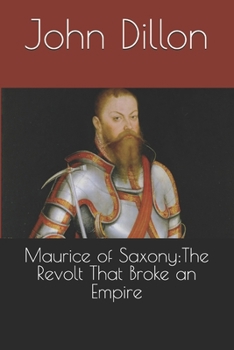Maurice of Saxony: The Revolt That Broke an Empire
Five years earlier, Charles had crushed Protestant resistance at the Battle of M hlberg, imprisoned Protestant leaders, and imposed the Augsburg Interim to restore Catholic practices across Germany. His victory seemed complete. But Maurice, the young Saxon prince who had fought for Charles and gained an electorate through his betrayal, secretly turned against the Emperor. In a brilliantly executed campaign lasting mere weeks, Maurice's forces swept through southern Germany while Charles, isolated and unable to mount effective resistance, fled into Austria.
The rebellion forced the Peace of Passau (1552) and the Peace of Augsburg (1555), which revolutionized European politics by formally accepting permanent religious division and establishing the principle that territorial rulers could determine their subjects' religion. Charles V, broken by failure, abdicated in 1556.
Maurice died in battle in 1553, just a year after his triumph, but his revolt transformed European civilization, marking the definitive end of medieval Christendom and the birth of the modern system of sovereign territorial states managing religious diversity through law rather than force.
Related Subjects
History




